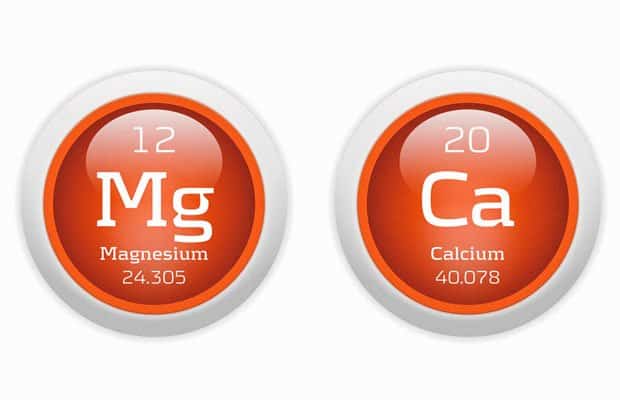Studies across the globe are showing that the ratio of calcium to magnesium is more important than the independent levels of each mineral like most of us originally thought. In America, there have always been numerous ads about the importance of calcium to build strong bones and teeth. This led to a huge focus on calcium intake, ignoring the importance of other mineral levels in our body.
The average Chinese diet, on the other hand, includes very little sources of calcium and the importance of the mineral is often ignored. In both cases, having too much and too little calcium is proving to have negative effects on our bodies because of its relationship to other vital minerals, like magnesium.
Calcium and magnesium work well together but if one is consumed in excess to the other it may lead to imbalances that can lead to health complications. Comparing the two, calcium works outside of the cells, exciting the body and plays a role in blood clotting, bone health and muscle contraction. Magnesium, on the other hand, works inside the cells, calming the body and plays a role in blood flow, soft tissue health and muscle relaxation.
The importance of this ratio was discovered in a Chinese study. The study discovered that when both calcium and magnesium levels are assessed in relationship to one another, you could more easily predict the health of the body. Calcium levels alone could not be correlated with death or disease, but lower death rates were recorded for Chinese men who had an appropriate calcium-magnesium (Ca:Mg) ratio.
The appropriate ratio has been debated but most can agree that a 2:1 ratio is a good rule of thumb. It is worth noting that this is a max ratio, not a minimum. For example, if you consume 1,000 to 2,000mg of calcium per day, you should also be consuming 500 to 600mg of magnesium to balance the ratio. If you do not consume enough magnesium (or too much calcium) the imbalance can become detrimental to your body’s function and overall health.
Calcium will antagonize magnesium, and if you are consuming too much it will begin to push magnesium outside of cells and overall put a halt to magnesium absorption throughout the body. This can lead to magnesium deficiency, which becomes a larger problem since magnesium plays a role in hundreds of functions in our body at any given time.
However, too much magnesium and not enough calcium is also detrimental. Higher death rates have been proven among those that had too much magnesium and not enough calcium.
Since there is heavy competition between the minerals it is sometimes recommended to consume them at different times of the day. Calcium is best consumed in the morning, and magnesium at night due to the roles they play in the body. Calcium is an energizer while magnesium has a calming effect, so taking it at night may lead to better sleep as well.
Balancing the Calcium:Magnesium Ratio

Balancing these mineral levels will start with your diet. Good sources of calcium include green, leafy vegetables like kale or spinach, dairy products cheese and yogurt, and seeds such as chia, sesame, and poppy seeds. Magnesium is found in dark chocolate, avocados, nuts such as almonds, cashews or brazil nuts and whole grains like wheat, oats or quinoa. Again, consuming foods high in calcium in the morning and high in magnesium at night is going to be the easiest way to avoid competition of the minerals in your body.
Doing your best to maintain a 2:1 ratio, consuming twice the amount of calcium to magnesium will help your body function at its optimal level. If you think you may need to consider supplementation, make sure that you are not over-supplementing one mineral over the other based off your current diet.
Consulting your doctor, nutritionist or dietitian, or considering a mineral hair analysis test is a great way to determine your current mineral levels and assess how to optimize your health.

